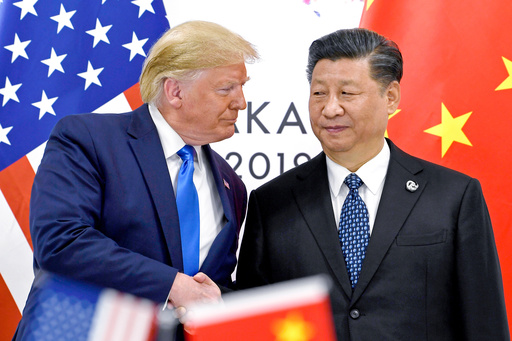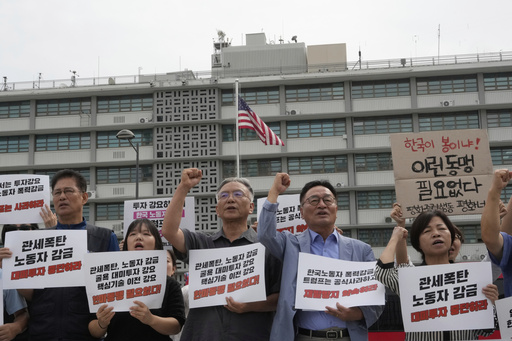
US starts investigating China’s compliance with 2020 trade deal as Trump heads to Asia
U.S. officials have launched an investigation into whether China fulfilled its commitments under a 2020 trade pact. The announcement came Friday as President Donald Trump prepared for a trip to Asia, where he may meet with Chinese President Xi Jinping. Trade tensions have risen, with both countries imposing more restrictions in recent weeks. Trump has threatened a new 100% tariff on China. The investigation may aim to find new leverage against Beijing and pressure it to buy more U.S. goods. An analysis shows Beijing purchased only 58% of the U.S. exports it committed to in the 2020 trade deal. This year, China has stopped buying American soybeans in a new trade war with the U.S.


